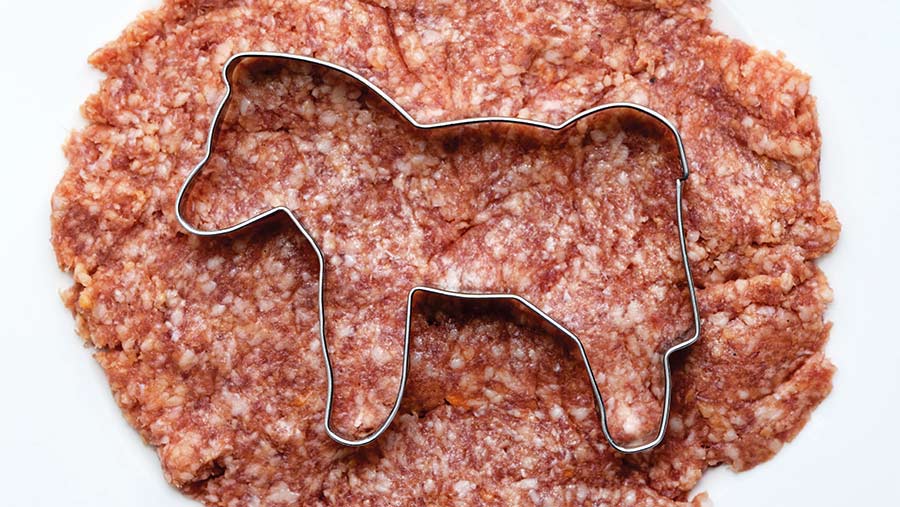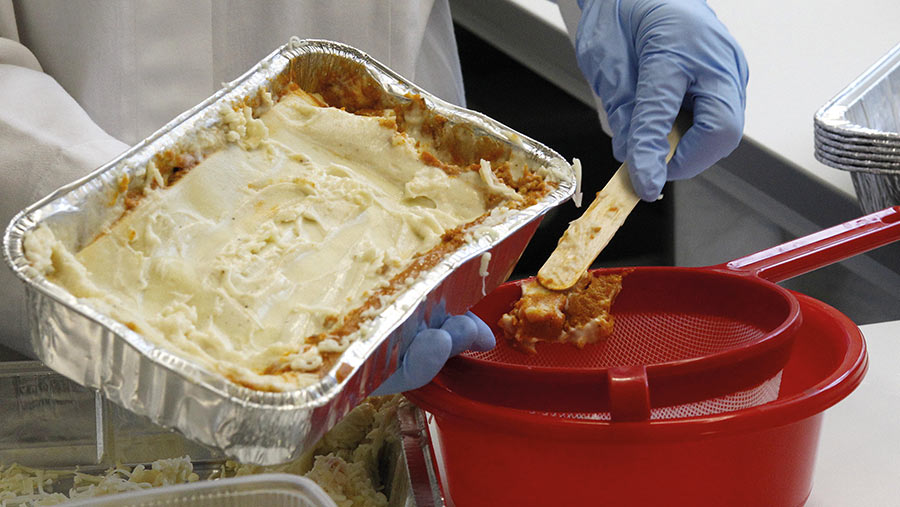Analysis: 10 years after horsegate, is another food scandal imminent?
 © Action Press/Shutterstock
© Action Press/Shutterstock In 2013, food safety authorities and governments across Europe were left humiliated by a continent-wide scandal which revealed that major retailers and well-known packaged food brands had been selling horsemeat in beef products.
The episode forced UK ministers to commission an inquiry headed by Professor Chris Elliott, following which he made a number of recommendations to improve the situation. But how far have we come in the decade since?
The answer, Prof Elliott says, is that progress has been made in some areas, but in others, the situation has worsened.
See also: Illegal horsemeat seized from slaughterhouses in Ireland
“The establishment of a National Food Crime Unit (NFCU), the Food Industry Intelligence Network and the Food Authenticity Network are three very big positives,” he says.
“But other things have taken a backward step. Brexit, the cost of living crisis and the war in Ukraine are really driving criminal activity.
“We are probably more exposed now than we have been in the last 10 years.”
Money to be made
Meat, in particular, will always be subject to “dodgy dealings”, according to environmental health expert Tony Lewis, because it is high in value and can be moved easily.
“There is more money to be made by organised criminals through food than through drugs, and a lot less risk,” he says.
In this sector and others, cash and carry stores are a real concern.
“These shops do not have the wherewithal to do checks and inspections,” says Prof Elliott. “The smaller the business, the more likely you are to be exposed to fraud.”
The food service industry is also particularly vulnerable, as provenance visibility is much lower in takeaways and restaurants.
Reginald Bevan, deputy head of the NFCU, told Farmers Weekly about a live investigation which found that chicken declared unsafe for human consumption was being redirected into the food chain.
It is suspected to have ended up in fast food outlets.
“An organised group was shipping this condemned chicken across the country to a single location, where it was being cut up effectively in a shed, and then being sold on,” he says.
But it is not just small stores and takeaways that are at risk. Although big retailers have taken steps to improve their DNA sampling since horsegate, the NFCU is also investigating a new case involving a supermarket chain.
“Operation Hawk” found that a supplier was selling large volumes of pre-packed South American and European meat to a retailer which claimed to sell only British products.
Post-Brexit exposure
Prof Elliott and Mr Lewis say leaving the EU has left the UK more exposed to risky food imports, too.
Much of the food destined for the UK from outside the EU comes into the country via European ports such as Rotterdam. Before Brexit, this would have been checked by the Dutch authorities. Now, however, that is no longer the case.
“It is ironic that our first line of control has been lost due to Brexit,” says Prof Elliot.
“There are more and more reported cases of meat unfit for human consumption coming into the country; lorry loads of it. That is just the tip of the iceberg.”
When the UK left the EU, it also left the European Rapid Alert System for Food and Feed, where member states share intelligence about suspect food.
Although the UK has now joined Infosan, a global voluntary network of national authorities with a role in food safety, Prof Elliot insists this is not a like-for-like replacement.
“They might get snippets of information informally, but they do not get the vast amount of knowledge, information and intelligence that exists within the food fraud network in the EU,” he says.
“I personally get more information than the whole UK government does.”
Non-meat concerns
Meat, however, is not the only product at risk of food crime in the 2020s.
Prof Elliott has issued a warning about highly processed plant-based products, which are increasingly popular, describing them as one of his “top concerns”.
“The burgeoning alternative protein market is pretty much unregulated,” he says.
“I talk to a lot of companies and there is a lot of worry about what they are buying. I have looked at bags and they will say 90% pea protein or 95% soya protein.

© dpa picture alliance/Alamy Stock Photo
“But there do not seem to be any checks or inspections at all. I would always wonder, if a label says 95% of something, what is the other 5%?”
Tim Lang, emeritus professor of food policy at City, University of London, also suggests that multi-ingredient products with the highest added value are most at risk.
“By reducing an ingredient here or there, you can maintain the cosmetic or taste appeal using permitted additives,” he says.
Social media is another modern concern, with so-called “Facebook food” posing a risk.
The trend for selling food on Facebook began during the pandemic, as people with time on their hands during lockdown began to make products in their own kitchens.
Prof Elliott says: “There is a burgeoning kind of artisan food market there, but it is totally unregulated, there are no checks or inspections. It is the Wild West of food.”
Inspection shortfalls
These new fronts that have opened up in the war against food crime have only served to exacerbate an existing problem with inspection.
Prof Lang, who is also an honorary president of the Chartered Institute of Environmental Health, says environmental health officers (EHOs) and local authorities which enforce food law have had their budgets cut for 13 years, and “did not even have enough back then”.
Mr Lewis adds that port health inspectors and official veterinarians are in short supply too.
Both agree with Prof Elliott that the country is “in no way” properly resourced to tackle food crime.
Prof Elliott says: “I have warned for a long time about the massive cutback in the amount of sampling and testing for food authenticity; it has dropped like a stone.
“Over the last 10 years, the number of tests and public analyst laboratories has continued to decline.”
Mr Bevan also acknowledges that the number of EHOs and trading standards officers has fallen in recent years.
“What you have got to try to do is be more intelligence-led and be more focused on the areas where the greatest vulnerabilities are,” he says.
“But the fact there are fewer people doing those roles is not ideal.”
This lack of resource, coupled with the loss of European intelligence and checks, has led Mr Lewis to conclude that the UK is in no better position than it was 10 years ago.
Mr Bevan disagrees, saying the new bodies established on the back of the Elliott review are a big step forward.
He also claims the NFCU is sharing more intelligence with industry.
But Tony Goodger at the Association of Independent Meat Suppliers questions whether this partnership goes far enough.
He says the unit has not told industry which supermarket or which supplier is involved in Operation Hawk.
“It is likely that the supplier company will be supplying other UK businesses, possibly in the more complex wholesale and catering butcher supply chain,” he adds.
“Without having greater detail, our members are not able to make an informed choice in relation to suppliers.”
Additional powers
Mr Bevan, while claiming the situation has improved, says he is “under no illusion about the challenges ahead”.
The NCFU is seeking additional powers under the Police and Criminal Evidence Act to help it meet those challenges, including the ability to apply for search warrants, seize evidence and interview arrested suspects.
The idea is to reduce reliance on external law enforcement and local authority partners, which are already stretched.
But the unit is still dependent on the wider justice system to enforce the law, and progress on charging suspects has already been hampered by a backlog in the courts following the pandemic.
With so many threats on the horizon, the experts fear the emergence of another horsegate, with Prof Elliott warning that next time, it is “much more likely” to affect public health.
Mr Lewis says: “The next scandal is happening now. We just do not know about it yet.”
